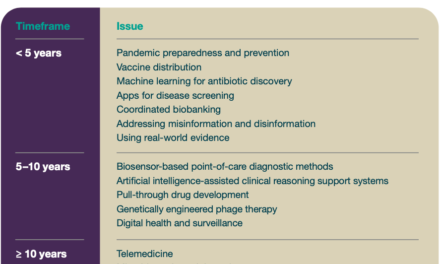Geneva, Switzerland – November 15, 2024
The World Health Organization (WHO) has announced new actions to bolster global health emergency responses through the Global Health Emergency Corps (GHEC), an initiative launched in May 2023 to create a unified, globally connected emergency health workforce. Developed in collaboration with ministries of health and partner organizations worldwide, GHEC aims to strengthen countries’ emergency response capacities and improve coordination mechanisms to save lives during health crises.
To support the implementation of GHEC, WHO has released adaptable guidelines that countries can apply at national, regional, and global levels. The framework was recently tested during a scenario-based exercise held from October 30 to November 1, 2024, where representatives from various nations gathered to discuss strategies for putting GHEC into practice.
Strengthening Emergency Workforces
Representatives from Brazil, Mozambique, and Qatar, among others, participated in the GHEC design workshop, sharing insights and expectations for the initiative. Dr. Soha Al-Bayat, Director of Health Emergency at Qatar’s Ministry of Public Health, highlighted GHEC’s value in assessing and refining emergency workforce capacities. “For countries with robust health security systems like Qatar, GHEC confirms we are on the right track and helps identify workforce-related gaps,” Dr. Al-Bayat said. “For others just beginning to build emergency capacity, it provides a roadmap to gain political support for implementation.”
Enhancing Coordination Across Surge Networks
The GHEC framework also emphasizes efficient coordination across emergency networks, helping countries avoid delays, duplication, and resource misallocation during crises. Reflecting on Mozambique’s experience with Cyclone Idai and the subsequent cholera outbreak in 2019, Dr. Eduardo Samo Gudo Junior, Director General of Mozambique’s National Institute of Health, noted that GHEC’s structured coordination would have significantly streamlined the country’s response efforts.
Brazil’s recent flooding emergency also underscored the need for streamlined intersectoral collaboration, said Dr. Leonardo Gomes Menezes, a specialist with Brazil’s Ministry of Health. “During the recent floods, search and rescue teams needed to work seamlessly with medical service providers. GHEC’s coordination mechanisms will enhance our effectiveness in similar future events,” he added.
Building Leadership Connections in Health Emergencies
A key element of GHEC is fostering connections among emergency health leaders to coordinate responses effectively. WHO is forming a health emergency leadership network across the African and Eastern Mediterranean regions and working toward establishing health emergency councils in South-East Asia and the Western Pacific. These councils will support pandemic preparedness and response efforts as part of WHO’s Asia Pacific Health Security Action Framework.
Next Steps in GHEC Implementation
The recent design workshop was a step toward consensus on GHEC’s implementation, introducing stakeholders to the potential of generative artificial intelligence (AI) as a tool to customize GHEC principles for diverse contexts. WHO will collaborate with designated “pathfinder” countries in the coming months to test the system through simulation exercises, further enhancing emergency response capabilities on a global scale.
With GHEC, WHO aims to support countries in evaluating and strengthening their health emergency workforce and coordination structures to create a resilient response system ready for future health crises.












